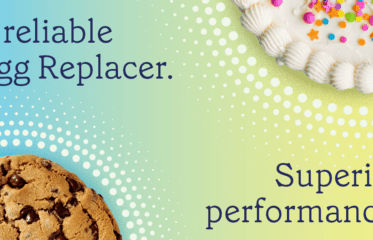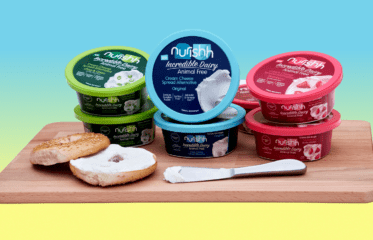Changing Courses: Chef Lucas Sin Talks Sustainable Cooking
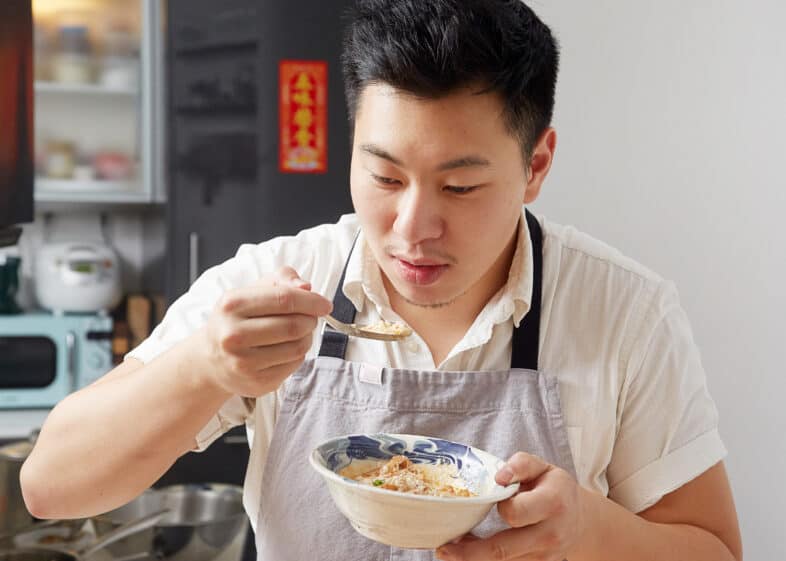
Named 2021 Best New Chef by Food and Wine and Forbes’ 30 under 30 in 2019, Chef Lucas Sin is catching the attention of the food world for making diners rethink American-Chinese food. At Perfect Day, we admire him because he’s rethinking a whole lot more.
As owner of New York restaurant Nice Day, chef Lucas is using his platform—and his kitchen— to shape the narrative around culture and sustainability. We sat down with him to learn more about his compelling and inspiring point of view on how to create a resilient planet, business, and community.
How has your view on sustainability evolved over time?
Most people are educated to believe that sustainability refers exclusively to environmental sustainability. Over time, I’ve learned to widen my understanding of the word sustainability to encompass not only nature but contexts such as the economy, society, culture, and people.
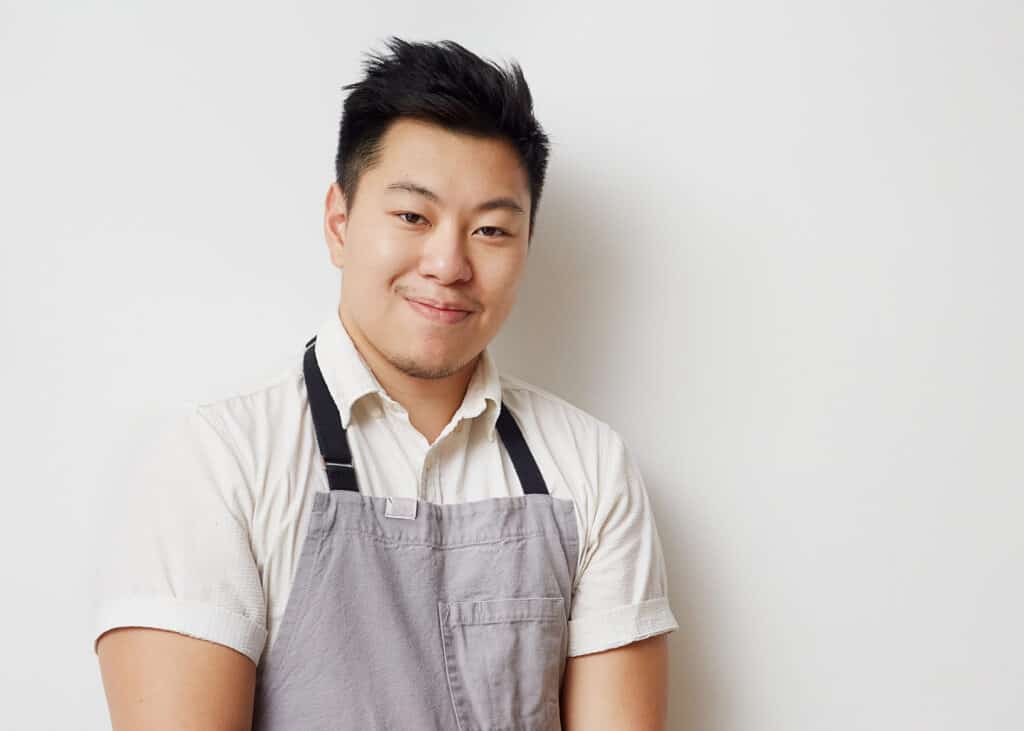
Why is it important for Chefs to prioritize sustainability and planet-positive practices in the kitchen?
Sustainability, broadly, means meeting our own needs without compromising the ability of future generations to meet their own needs. For chefs and anybody involved in any part of the food system, this is vital to ensure the continued success and evolution of what we believe in.
Who are some sustainable Chefs that inspire you?
This may be an unconventional answer, but I think of a lot of the work of Cecilia Chiang as incredibly important to the sustainability of Chinese cuisine. Since opening the Mandarin in 1962, Cecilia has never stopped being a champion for a diverse understanding of Chinese food. She’s constantly pushed against the idea that Chinese cuisine is monolithic while building a legacy and a community of chefs that have continued to work towards a shared mission, even after her career, like PF Changs and Panda Express, both of which trace their origins to Cecilia’s restaurant.
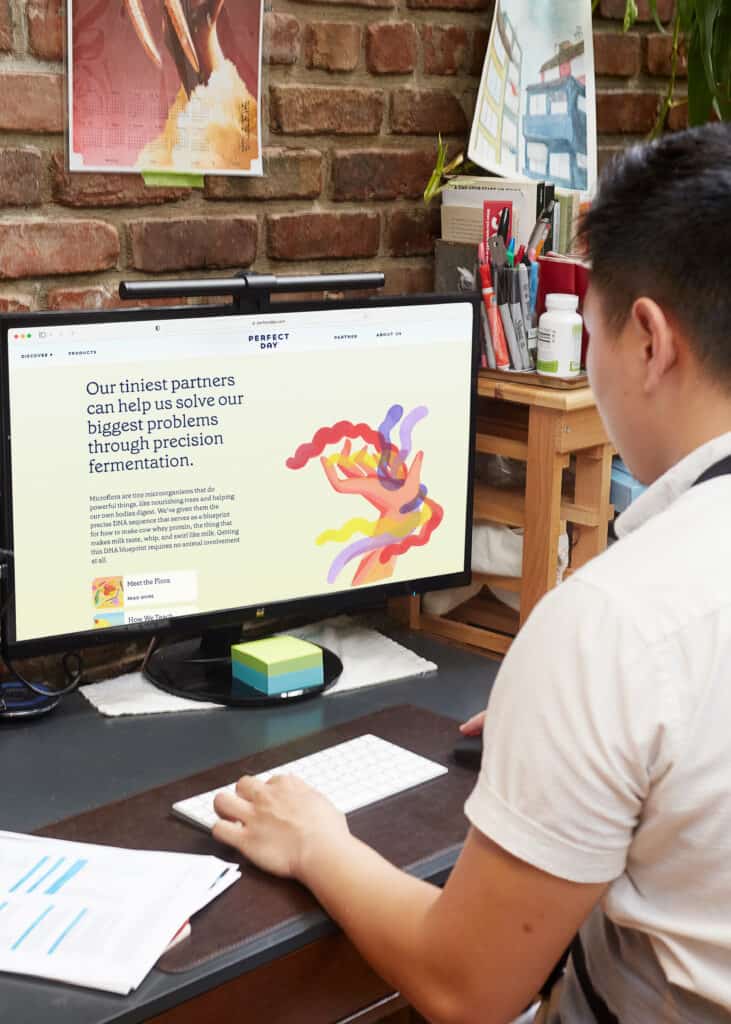
What is working with the Perfect Day milk like?
Perfect Day milk was delightful to work with, especially since I did not grow up as a dairy drinker. Its similarities to animal milk make it an easy substitute for most recipes, but its differences have also ignited my curiosity to look at and approach milk in a different way, as is the case in my Savory Perfect Day Soy Milk recipe. The PD team was also instrumental in helping me understand the chemical properties of the product.

How did you decide to make your dish?
Taiwanese and Shanghai breakfasts are very dear to me; it just so happens that there are elements of savory soy milk and peanut milk that might present milk in different contexts, flavors, and textures.
What’s one piece of advice you’d give to an aspiring Chef?
So much of cooking and running restaurants is about learning on the job, on the go. Lifelong learning and unquenchable curiosity are critical. Now, most of us cannot will ourselves to be passionate, but what we can do is immerse ourselves in passionate communities. This is all to say, surround yourself with peers that you look up to, and don’t be hesitant about reaching out to your heroes to work with them, cook with them, and learn with them.
We’d love to hear your thoughts!
Your email address will not be shared.

